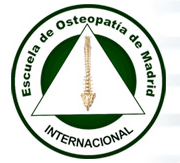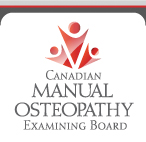By Stacey Pelinka, GCFP
Two years ago, my student Claire felt in control of her life. A professional flutist, she had a full-time teaching schedule and played in two orchestras. She had just lost 40 pounds, worked out rigorously, and thought of herself as a tough, strong woman. Then suddenly everything changed: she began experiencing debilitating chronic pain. Doctors told her to stop most of her exercise regimen and prescribed anti-depressants for the pain which had side effects like shaky hands and dry mouth – not helpful for a flutist.
Claire spent a good deal of time in our first few lessons talking about cause and effect, hoping that she could find the cause of her pain in order to control and remove it. But this approach was backing her into a corner – it meant that she had to restrict her activities to a very narrow scope. She didn’t know what caused the pain to grow more severe, and became afraid to do anything. When I asked her if she felt in control, she answered, “No. The pain is in control.”
We in the West are very taken with the idea of being in control. We like to be in the driver’s seat; we value independence and individual choice. We believe that if we exert enough control over ourselves, we can have good health, a successful career, a perfect body. The Feldenkrais Method® is a good antidote to this preoccupation.
In Body and Mature Behavior, Dr. Moshe Feldenkrais writes that our nervous systems are so complex that it is impossible to have a pure thought, a pure emotion, or a pure motor impulse. Each movement we make also has components of thought and emotion involved; each thought and emotion involves some degree of movement and sensation. Our conscious minds cannot possibly monitor and manage such a complex system. What they can do is learn to let go of managing, stand back, and observe what changes as the system organizes itself.
Try the following brief scanning exercise. It is an example of how the Feldenkrais Method offers opportunities to observe rather than trying to control:
Lie on your back, legs long, arms at your sides. Observe how your arms are lying. Does one feel longer, shorter, lighter, heavier than the other? Next, notice how your head is lying – is your ear on one side closer to the shoulder than on the other side? Is it possible to notice these differences without judgment? Can you be aware of asymmetries without straightening them out?
Now observe your breathing. Can you follow the movement of your breathing in your chest and abdomen without changing the rhythm or size of your breaths? How does it feel to pay attention like this?
Bring this same open-minded attention to an area of discomfort. Can you keep your attention gently there, without shifting to get more comfortable? What is the quality of the discomfort – muscle tightness; achiness; sharp pain? Now notice an area of yourself that is comfortable. What is the quality of sensation in this area? Notice that you have both areas of comfort and discomfort, of varying size, degree, and quality. Without judgment, scan your whole self and notice these varying sensations. Do you notice any changes? Without judgment, scan your whole self and notice these varying sensations.
See if you can gently roll to your side, stand, and walk around while maintaining this awareness of yourself. How do you feel after having asked these questions? Do you notice any changes?
This type of non-judgmental, exploratory scanning is a great skill we can learn from studying the Feldenkrais Method. Asking questions is often more useful than finding answers. Feldenkrais® lessons have helped Claire explore her own use of attention and expand her awareness of her movements and sensations. She is using the scanning technique described above to help with pain management. As she shifts from a focus on control to an exploration of her movements and sensations, the scope of her life is gradually beginning to open up again.
Stacey Pelinka is a Guild Certified Feldenkrais Practitionercm and a professional flutist living in San Francisco.








 4:30
4:30
 Daniel Enriquez de Guevara
Daniel Enriquez de Guevara




























.jpg)






















0 comentarios :
Publicar un comentario